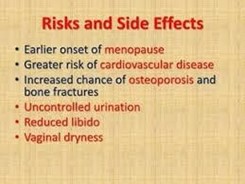A nurse is providing discharge teaching to the mother of a newborn who is breastfeeding.
Which of the following statements should the nurse make?
"Newborns typically lose about 15 percent of their body weight following birth."
"You should keep your baby on a strict feeding schedule."
"You should consume an extra 650 calories a day while breastfeeding."
"Offer your baby a pacifier before sleep when he is 1 month old.".
"Offer your baby a pacifier before sleep when he is 1 month old.".
The Correct Answer is C
Choice A rationale:
Newborns typically lose some weight after birth, but 15 percent loss would be excessive and concerning. A normal weight loss range is about 5 to 10 percent.
Choice B rationale:
Newborns should be fed on demand rather than adhering to strict schedules to ensure they are adequately nourished.
Choice C rationale:
Breastfeeding requires additional energy, and mothers are generally advised to consume around 500 extra calories a day to support milk production and their own energy needs.
Choice D rationale:
Offering a pacifier before sleep can reduce the risk of sudden infant death syndrome (SIDS), but this recommendation usually starts at around 1 to 2 months of age.
Nursing Test Bank
Naxlex Comprehensive Predictor Exams
Related Questions
Correct Answer is D
Explanation
Choice A rationale:
Weight loss is not typically an expected manifestation following a total abdominal hysterectomy.
Choice B rationale:
Increased libido is not necessarily an expected manifestation following a total abdominal hysterectomy.
Choice C rationale:
Decreased menstrual bleeding is expected, as the uterus has been removed.
Choice D rationale:
Vaginal dryness is an expected manifestation following a total abdominal hysterectomy due to the removal of the ovaries, which produce hormones that contribute to vaginal lubrication.

Correct Answer is D
Explanation
Choice A rationale:
A blood pressure of 78/60 mm Hg is indicative of hypotension which is a common complication of anorexia nervosa. However. the low body temperature takes precedence
Choice B rationale:
Weight loss of 20% over the last 6 months is concerning but may not be an immediate indicator for acute care admission.
Choice C rationale:
An apical pulse rate of 50/min is bradycardia, which can be a result of anorexia nervosa, but it may not be an immediate indicator for acute care admission unless the client is symptomatic.
Choice D rationale:
A body temperature of 35.5°C (95.9°F) is below a normal range signfyng hypothermia which needs immedate intervention.
Whether you are a student looking to ace your exams or a practicing nurse seeking to enhance your expertise , our nursing education contents will empower you with the confidence and competence to make a difference in the lives of patients and become a respected leader in the healthcare field.
Visit Naxlex, invest in your future and unlock endless possibilities with our unparalleled nursing education contents today
Report Wrong Answer on the Current Question
Do you disagree with the answer? If yes, what is your expected answer? Explain.
Kindly be descriptive with the issue you are facing.
